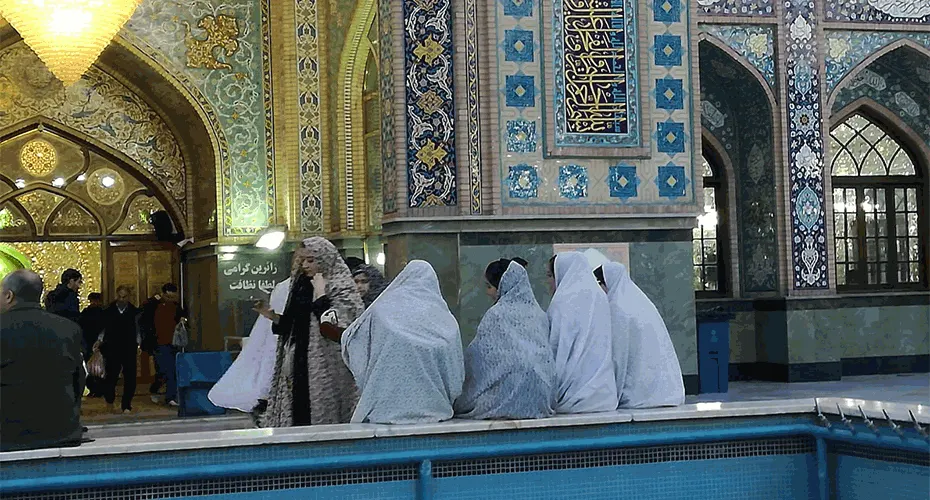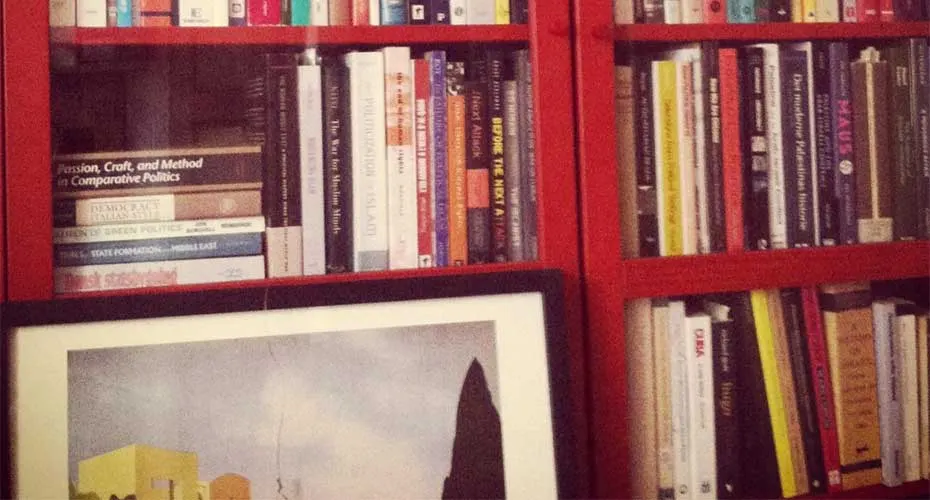Centre for Middle East Politics
The Centre for Middle East Politics (C-MEP) is a cross-departmental and multi-disciplinary research centre addressing issues in Middle East Politics past and present. C-MEP members span most countries in the Middle East and North Africa (MENA) as well as a broad range of topics, including – but not limited to - electoral politics, tribalism, gender studies, colonial studies, democratization and security.
Furthermore, C-MEP research covers not only present-day politics of the MENA, but also the colonial era and the time before that, delving far back into history with a view to contribute to our understanding of past political events and processes, but also to help us comprehend current MENA affairs.

In this section
Centre staff
C-MEP research strengths are broadly split across seven themes. See the themes below where you will find further information about the people associated with that particular area of research.
Conflict, security and state building
Authoritarianism and democracy
The politics of empire, post-colonialism and de-colonization
Gender, migration and inclusivity
About the Centre for Middle East Politics
The Centre was established as a collaborative effort between the Institute of Arab and Islamic Studies (IAIS) and the Department of Social and Political Sciences, Philosophy, and Anthropology with a view to encourage collaborative research of the highest quality, strengthen teaching, and foster a stronger and richer community amongst staff and students working on Middle East Politics. Membership of C-MEP is open to staff and students regardless of their departmental affiliation, all we ask is that you have an interest in Middle East Politics and wish to play an active role within C-MEP. C-MEP was always envisaged as a collaborative effort, and we particularly encourage and support the active involvement of postgraduate students and early career researchers in shaping our activities, whether in terms of teaching, research or career progression.
In terms of research, C-MEP covers a large number of countries and most regions within the Middle East and North Africa as well as a broad range of topics. C-MEP research is clustered around 4 topics:
- Conflict, security and state building
- Authoritarianism and democracy
- The politics of empire, post-colonialism and de-colonization
- Gender, migration and inclusivity
C-MEP welcomes applications from high-calibre visiting postgraduate students and academic staff with a view to collaborate on research that will advance the field of Middle East Politics. It is worth highlighting that C-MEP members regularly engage in policy-related work and undertake consultancy assignments. For an overview of staff expertise, please see the key staff snapshots on the research themes pages or the full individual staff profiles, or follow the links to their full profiles.


Visiting scholars
The C-MEP welcomes visiting academic staff (including postdocs), which at the University are classified as honorary appointments. Visiting academic staff will be granted access to certain University facilities to further their own research or to cooperate on joint research to the mutual benefit of both themselves and C-MEP.
Please note that an honorary appointment is not a contract of employment and visiting academic staff will not receive any remuneration for work they undertake in their honorary capacity.
Dr Juan A. Macías-Amoretti
Honorary Research Fellow
Dr Juan A. Macías-Amoretti is an Associate Professor of Arabic and Islamic Studies at the University of Granada, where he lectures in Contemporary Arab Thought, Contemporary History of the Arab World, and Contemporary Arab Philosophy and Islamic Discourse in graduate and postgraduate studies. He is a Senior Research Fellow at the research group Contemporary Arab Studies at the UGR (HUM108), and Honorary Research Fellow at the IAIS, University of Exeter.
Studying with the Centre for Middle East Politics
Students form an intrinsic part of C-MEP, not only in terms of education, but also with regard to research and other activities. C-MEP seeks to foster an inclusive, supportive and inspiring environment that allows students to thrive and excel in their degree programme, whether a postgraduate taught or research degree. At present, C-MEP houses postgraduate taught degrees, which are taught by staff from the Institute of Arab and Islamic Studies and the Department of Social and Political Sciences, Philosophy, and Anthropology.
We offer one-year degrees, which focus on political science as well as two-year degrees, which afford students the opportunity to learn Arabic as part of their degree or to delve deeply into the subjects of politics and international relations to an extent not currently offered by many other universities in the UK.
One-year MA programmes
Two-year MA programmes
Postgraduate research



